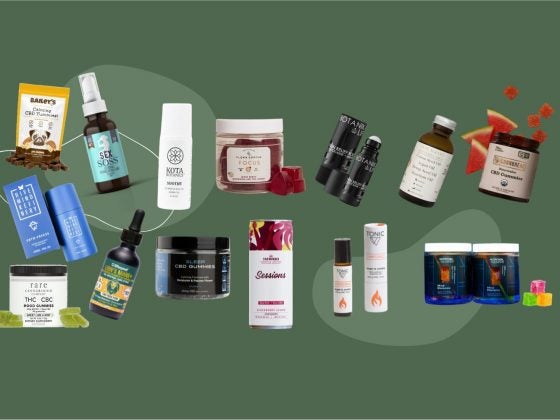Kim Williamson, the founder of Shanti Life and Woke Botanicals, is a prominent figure in the wellness and organic hemp industry.
With a background that spans over three decades in the health and beauty sector, Williamson has dedicated herself to promoting holistic health and living. Her journey began as a yoga instructor and holistic therapist, where she honed her understanding of the mind-body connection and the benefits of natural remedies.
Williamson’s mastery is not just theoretical; she has immersed herself in the practical aspects of wellness. She studied yoga and Ayurveda in India, learning from renowned practitioners and integrating these ancient practices into her modern wellness methods. Now, she applies the same lessons learned over her lifetime to Shanti Life, a boutique known for its high-quality CBD products and similar items.
The Future of the Organic Hemp Industry
The future of the organic hemp industry looks promising, with several factors contributing to its potential growth. One key driver is the increasing legalization and regulatory support for hemp cultivation.
The 2018 Farm Bill in the United States reclassified hemp as an agricultural commodity and paved the way for major advancements in the industry. Experts expect the proposed 2024 Farm Bill to further shape the trajectory of the hemp industry through expanded market opportunities.
“I’m excited to see where this all goes. If it’s done right, we might be watching the birth of a revolution. A more natural, healthy one,” says Williamson.
Technological advancements in hemp cultivation and processing also affect the industry’s growth. Modern harvesting and processing techniques are making it easier for farmers to cultivate hemp efficiently, increasing the supply of high-quality hemp products. Additionally, the development of new hemp-based products, such as textiles, building materials, and biofuels, is opening up new markets and applications for hemp.
Trends in the Organic Hemp Market
According to market research, the global industrial hemp market is expected to grow at a compound annual growth rate (CAGR) of 16.9% from 2024 to 2030, reaching a valuation of $F14.84 billion by 2030. Hemp’s versatility fuels this growth, as various industries, including textiles, construction, and biofuels, use hemp.
“People are becoming aware of just how bad some industry practices are. We will offer effective products taken from only the most vetted of sources. Someone must lead by example and we want to be the first,” Williamson explains, referencing Shanti Life’s close parallel with consumer demand.
One of the most significant trends in the organic hemp market is the rising demand for hemp-based foods. This is forecast to grow by $6910.9 million during 2023-2028, accelerating at a CAGR of 16.41%. The growing vegan population and increasing prevalence of celiac disease have led to a higher demand for gluten-free and plant-based food options, contributing to this surge.
To Temper Expectations
Although the overall market trends toward greater sustainability and eco-friendliness, hazardous and unethical practices may still exist in the hemp market. As demand for hemp-based products rises, opportunistic entities may seek to sidestep legal safeguards and ethical guidelines. “For products we source, even if the lab report comes back pure, we have to think of the Earth as well,” Williamson emphasizes.
Hemp is known for its ability to sequester carbon, improve soil health, and reduce the need for chemical inputs, making it a valuable crop for sustainable agriculture. However, this can easily be offset by overfarming practices, the use of damaging chemicals or other issues.
Kim Williamson’s insights into the organic hemp market exemplify the need for quality, transparency, and sustainability throughout a rapidly growing industry. Businesses are encouraged to follow Shanti Life’s example, thoroughly checking their manufacturing or sourcing paths to continue the trajectory of the market sector itself.
Photo Credit by Kim Williamson

















